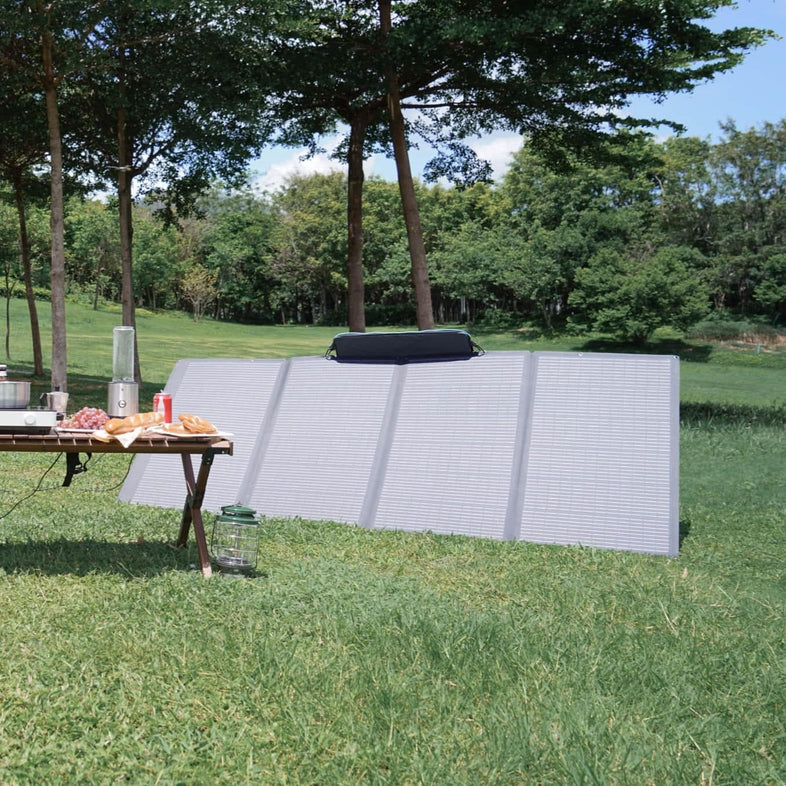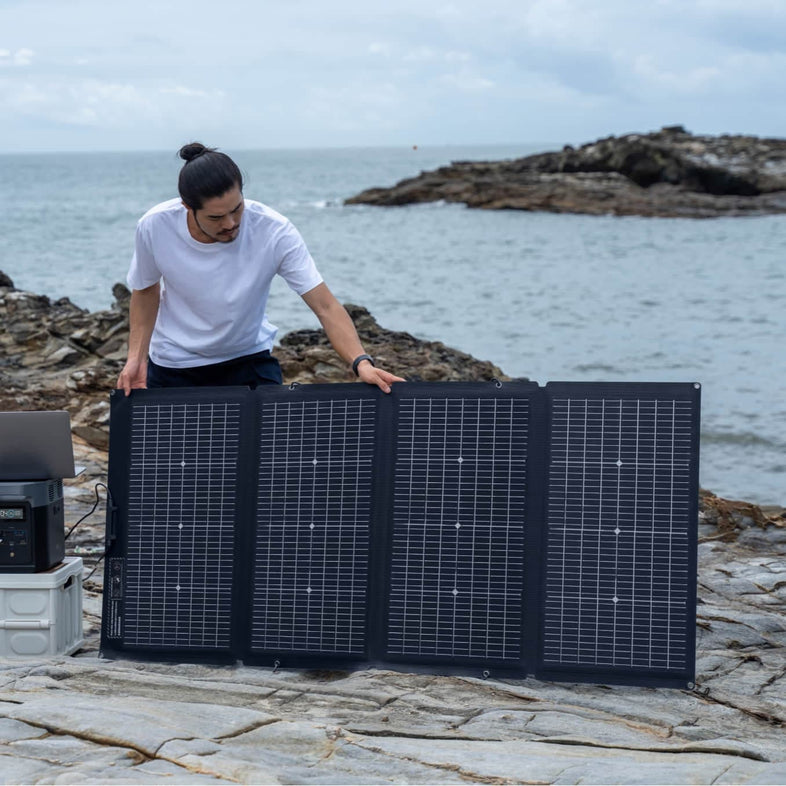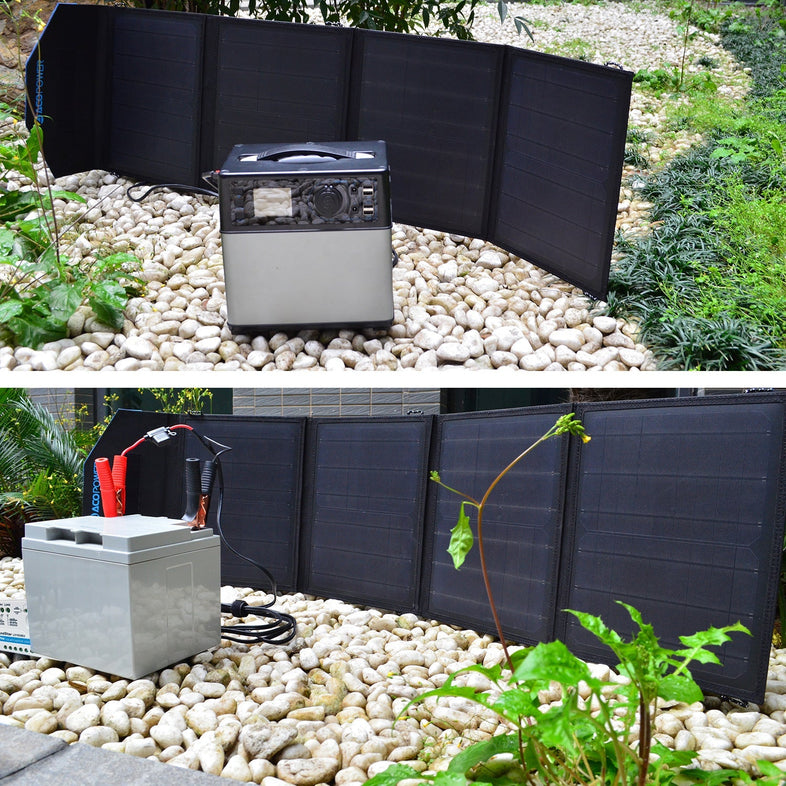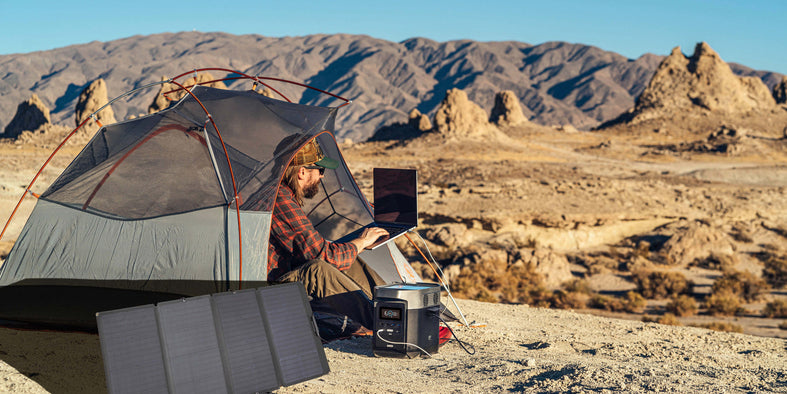
Solar Panels Vs. Generators: Powering Your Overlanding Adventure
When deciding between solar panels and generators for your overlanding adventure, consider the power source's reliability and convenience.
Powering your off-grid journey requires careful consideration. Whether exploring the open road or seeking a remote wilderness retreat, self-sufficiency is vital.
In this guide, we'll compare the practicalities of each option, ensuring your devices stay charged and your comforts remain uninterrupted.
Don't limit your freedom with traditional power sources. Let's explore the world of off-grid power!
Key Factors to Consider When Choosing Solar or Generator
When choosing between solar panels and generators for Overlanding, there are several factors to consider:
Reliability and maintenance needs
Solar panels offer high reliability with minimal maintenance. They harness the sun's energy without moving parts, reducing mechanical failure risk. Occasional cleaning ensures optimal performance.
Generators require regular maintenance like oil changes, filter replacements, and spark plug checks. They've more components that can wear out or malfunction, leading to unexpected breakdowns.
For a worry-free overlanding experience, solar panels provide dependable power with minimal upkeep, allowing focus on the adventure ahead.
Power output and capacity
For solar panels, evaluate wattage and efficiency to meet off-grid power needs.
When considering generators, consider the rated power output to align with electrical system requirements.
Additionally, consider the quiet nature and minimal environmental impact of solar panels compared to the noise and emissions of generators for a peaceful outdoor experience.
Make an informed decision based on power output, noise levels, and environmental impact to suit your off-grid vehicle lifestyle.
Environmental impact
Solar panels harness the sun's energy, producing no harmful emissions or noise pollution. In contrast, generators emit pollutants through fuel combustion, contributing to air and noise pollution.
Additionally, generator production and disposal raise environmental concerns due to non-renewable resource reliance and potential toxic waste.
Noise levels
Noise affects peaceful surroundings, wildlife interaction, considerate camping, and unrestricted freedom.
For overlanding, quiet, uninterrupted power is crucial for exploring without disruptions.
Size and portability
Solar panels are lightweight and easy to set up, ideal for charging batteries on the go.
Generators offer high power output but require fuel and maintenance.
Your choice depends on your specific needs and desired level of portability.
Prioritize convenience with solar panels or versatility with generators to align with your overlanding goals.
Upfront and long-term costs
Solar panels involve a higher upfront investment for purchase and installation than generators. Generators, however, are generally less expensive to acquire initially.
In terms of long-term expenses, solar panels have minimal ongoing costs as they utilize renewable energy. On the other hand, generators require regular fuel purchases, leading to higher long-term expenses.
Maintenance costs for solar panels are low, while generators need regular servicing, oil changes, and component replacements.
When using solar panels, a power inverter may be necessary to convert DC power into usable AC power for devices. Generators may not require this additional equipment but consider the cost implications.
How Solar Panels Work for Overlanding
Calculating power needs ensures meeting energy demands, and knowing how to charge batteries and run electronics off solar power is essential for a successful adventure.
Components of a solar system
When preparing for overlanding, understanding solar system components is crucial for powering your journey. Here's a breakdown:
Solar Panels: These convert sunlight into electricity using photovoltaic panels.
- Charge Controller: It regulates energy flow from panels to the battery, preventing overcharging.
- Battery: Solar panels store energy in a deep cycle battery for reliable power during remote camping.
- Inverter: This converts the battery's DC power into AC power for running devices and appliances.
Understanding these components empowers you to harness solar energy for remote adventures, ensuring essential energy needs are met.
Calculating power needs
This can be done by identifying the electrical devices you will be using and determining their power consumption. Consider the duration of usage for each device and the average sunlight hours in your location to select the size and number of solar panels required.
Overestimating your power needs can lead to unnecessary expenses, as you may purchase more solar panels than necessary. On the other hand, underestimating your power needs can result in an insufficient power supply, leaving you without the energy you need while off-grid.
You can optimize your solar setup for Overlanding by accurately calculating your power needs. This ensures you have enough power to meet your requirements and allows for an uninterrupted power supply during your adventures.
Charging batteries and running electronics
Place solar panels for maximum sunlight exposure.
Invest in high-capacity batteries for storing excess solar energy.
Choose energy-efficient electronics to minimize power consumption.
Opt for lightweight and portable solar panels.
Ensure a continuous and reliable power supply for Overlanding by:
- Optimizing solar panel placement
- Using high-capacity batteries
- Selecting energy-efficient electronics
- Investing in portable solar panels.
Best portable solar panels for Overlanding
When considering portable solar panels for overlanding, several options offer lightweight, durable, and efficient designs. The EcoFlow 400W, EcoFlow 220W Bifacial, ACOPOWER 50W Mono PV Foldable, and EcoFlow DELTA 1300 + Solar Panel are all great choices.
These panels are ideal for off-grid power needs during overlanding trips. They can be used for charging electronics or powering campsites.
1. EcoFlow 400W Portable Solar Panel

The EcoFlow 400W Portable Solar Panel provides 400W power, ensuring efficient charging for your portable power station during overlanding trips.
This lightweight and foldable panel weighs only 8.8 lbs, making it easy to carry and set up.
Constructed with durable materials, it withstands outdoor conditions, guaranteeing reliability in remote locations.
It seamlessly works with EcoFlow power stations, offering a convenient, eco-friendly power solution for overlanding adventures.
2. EcoFlow 220W Bifacial Portable Solar Panel

The EcoFlow 220W Bifacial Portable Solar Panel provides efficient and reliable power for overlanding adventures. Its lightweight design and easy setup make it perfect for on-the-go use.
With a bifacial design, it captures sunlight from both sides, maximizing energy production in challenging conditions. Durable and reliable, it withstands outdoor exploration, providing a sustainable power source for camping and road trips.
3. ACOPOWER 50W Mono PV Foldable Solar Panel

The ACOPOWER 50W Mono PV Foldable Solar Panel is designed for Overlanding and offers portable, efficient, and versatile power generation.
Its foldable design ensures easy portability and quick setup.
The monocrystalline photovoltaic cells guarantee high energy conversion, providing reliable power for your green vehicle.
Equipped with a charge controller, it's compatible with various devices, reducing noise pollution for a quieter outdoor experience.
This solar panel empowers overlanding adventures with clean, reliable power.
4. EcoFlow DELTA 1300 + Solar Panel

For convenient and sustainable overlanding power, the EcoFlow DELTA 1300 + Solar Panel offers reliable energy without noisy generators.
This portable setup features lightweight, foldable solar panels and an efficient electric battery, providing a liberating overlanding experience.
How Generators Work for Overlanding
When selecting a generator for overlanding, consider fuel options like gas or diesel. This will determine the practicality and convenience of using a generator during overlanding trips.
Fuel options - gas vs diesel
When selecting fuel for your overlanding generator, consider the following factors:
Gasoline:
- Conveniently available at most gas stations, providing flexibility during travel.
- Generally more affordable than diesel, saving money on your journey.
Diesel:
- Known for fuel efficiency, maximizing generator use without frequent refueling.
- Offers better torque and enhanced towing capabilities, ideal for off-road adventures and hauling overlanding gear.
Choosing the right fuel type for your generator is crucial for an effective overlanding expedition.
Power output considerations
Look for sufficient wattage to run essential appliances and account for fluctuating power demands.
Some enthusiasts combine generators with solar panels for supplemental power.
Understanding your power requirements and generator capabilities ensures a seamless overlanding experience.
Refueling and maintenance needs
When evaluating generators for Overlanding, consider refueling and maintenance needs as they directly impact sustained power.
Key factors to assess include fuel efficiency, maintenance requirements, noise level, and environmental impact.
Understanding these aspects helps make an informed decision on the most suitable generator for overlanding.
Best generators for off-grid camping
When selecting generators for off-grid camping, there are several options to consider.
1. ACOPOWER 154Wh/160W Portable Solar Generator
The ACOPOWER 154Wh/160W Portable Solar Generator offers convenient off-grid power for camping adventures. With a lightweight design of 3.3 lbs, it's easy to transport.
It features versatile charging options, including solar panels, a carport, and a wall outlet, ensuring power in any environment. Equipped with AC, DC, and USB outputs, it can power various devices simultaneously.
The 154Wh capacity provides reliable power for essential electronics during off-grid camping trips.
2. ACOPOWER 154Wh Generator And 50W Portable Solar Panel
When embarking on off-grid camping, rely on the ACOPOWER 154Wh generator and 50W portable solar panel for dependable energy.
This dynamic duo ensures independence in remote areas, powering essential devices for uninterrupted expeditions.
The ACOPOWER 154Wh generator offers a compact solution, complemented by the 50W portable solar panel for harnessing solar energy on the go.
Embrace true adventure without traditional power constraints with this game-changing gear.
3. EcoFlow Smart Generator (Dual Fuel)
The EcoFlow Smart Generator stands out for its versatility and environmental friendliness when off-grid camping. It offers dual fuel capability, ensuring adaptability to different situations.
Additionally, its quiet operation maintains the tranquility of nature. Furthermore, its portability makes it ideal for overlanding trips, and its zero emissions contribute to a cleaner outdoor experience.
4. EcoFlow DELTA Pro + Smart Generator (Dual Fuel)
Use the versatile EcoFlow DELTA Pro + Smart Generator for consistent power when off-grid camping.
This intelligent generator supports electronic gadgets, mini-fridges, and campsite lighting, running on solar power or traditional diesel.
Hybrid Solar-Generator Systems
A hybrid solar-generator system offers an efficient and reliable power supply when embarking on an overland adventure. Here's why it's a beneficial setup:
- Versatility: This system allows harnessing solar energy during the day and switching to generator power at night or in cloudy conditions.
- Extended Power: With a hybrid system, continuous power is ensured, as the generator can activate when solar panels aren't producing enough electricity.
- Reduced Fuel Dependency: By utilizing solar energy, the amount of fuel needed for the adventure is significantly reduced, allowing for exploration without frequent refueling stops.
- Environmental Benefits: The combination of solar and generator power reduces carbon emissions, making the overlanding experience more eco-friendly.
A hybrid solar-generator system delivers the freedom to explore off-grid while maintaining a reliable power supply.
FAQs
What size solar panel setup do I need for Overlanding
To power your overlanding adventure, choose a solar panel setup based on your power needs and trip duration. Calculate device power consumption and estimate daily watt-hours.
Ensure battery capacity meets energy requirements during low sunlight periods. If in cloudy or high latitude areas, increase solar panel capacity.
How long will my generator run on a full tank while Overlanding
When overlanding, the runtime of your generator on a full tank depends on its fuel efficiency. Portable generators typically run for 7-10 hours on a full tank.
However, high-efficiency models can run for up to 12 hours or more.
Plan for fuel capacity based on power needs, especially for extended off-grid trips.
What is the best option for off-grid power overlanding? Solar or generator
Solar panels offer portability and silence with minimal maintenance and no environmental impact.
In contrast, generators are less portable, noisy, require regular maintenance, and contribute to pollution.
Ultimately, the choice depends on preferences for portability, noise level, environmental impact, and maintenance.
How to calculate your electrical load for Overlanding
When calculating your overlanding electrical load, list essential devices and appliances like lights, fridges, and phone chargers.
Check power ratings for total wattage and estimate daily energy consumption based on hours of use.
Add a 20% safety margin for unexpected power needs.
Then, decide if solar panels or a generator best suit your needs based on total daily watt-hours.
This ensures the freedom to power your overlanding adventure without running out of energy.
How to wire an auxiliary solar panel system
When setting up an auxiliary solar panel system, there are several steps to follow:
- Place the panels where they receive maximum sunlight. This will ensure that they can generate the most energy possible.
- Use high-quality, weather-resistant wires for minimal power loss. This is important to ensure that the energy generated by the panels is efficiently transferred to the rest of the system.
- Connect the panels to the charge controller and battery using the appropriate connectors. This will allow the energy generated by the panels to be stored in the battery and used as needed.
- Install a fuse or breaker to protect the system from overcurrent. This is a crucial safety measure that will prevent damage to the system in case of a power surge or other electrical issues.
Conclusion
Solar panels offer eco-friendly, quiet energy, while generators provide reliable power in any weather.
Your decision should consider energy needs, budget, and environmental impact.
Whether you choose solar, a generator, or a hybrid system, you'll have the power you need for a great outdoor experience.
Happy overlanding!
